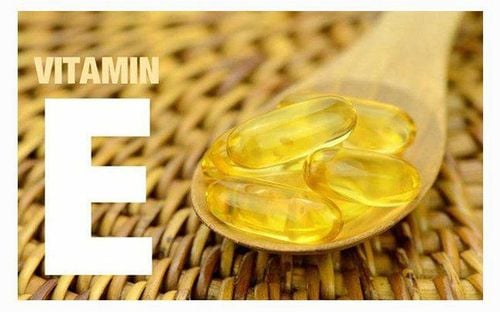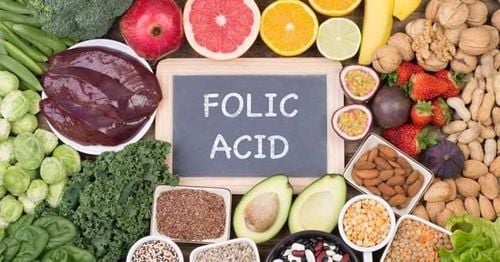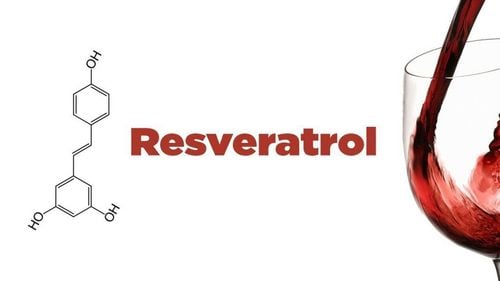This is an automatically translated article.
Inflammation is the body's natural response to an infection. The following article will introduce you to some anti-inflammatory vitamins that are beneficial for health.1. What is inflammation?
Inflammation is divided into two types: acute inflammation and chronic inflammation based on the duration of the disease. Acute inflammation comes on quickly and ends in a short time, while chronic inflammation persists for months or years if the immune system is not strong enough to fight off the original pathogen.
When the body is injured or encounters an inflammatory agent, the immune system will be activated to repair and regenerate the wound to return the body to its original state. However, if symptoms of inflammation such as swelling, heat around the wound, redness and pain persist after the wound has healed, then you are likely experiencing chronic inflammation.
If chronic inflammation is not controlled, it will contribute to chronic diseases such as heart disease, diabetes, obesity, cancer, Alzheimer's disease ...
In addition, the risk of chronic inflammation is also increased. related to other factors such as diet, family history, lifestyle,..
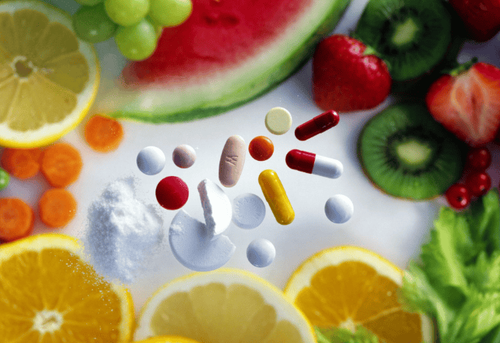
Có nhiều loại vitamin kháng viêm có lợi cho sức khỏe
2. Some anti-inflammatory substances and vitamins
Scientists have researched some vitamins with anti-inflammatory effects, they are introduced into the body by using foods found in nature.
2.1. Vitamin A Studies have found that vitamin A works to keep the immune system in balance, not working too hard to lead to inflammation. Vitamin A exists in two forms, including Beta-carotene (a precursor to vitamin A) and vitamin A. Both forms act as an antioxidant that protects the body against damaging free radicals.
Healthy food sources of vitamin A include carrots, bok choy, kale, spinach and leafy greens,...
2.2. B group anti-inflammatory vitamins Studies have shown that patients with vitamin B6 deficiency often have high levels of C-reactive protein (CRP). This is a compound that has the potential to cause inflammation, especially in inflammatory autoimmune diseases such as rheumatoid arthritis.
You can use some foods rich in B vitamins such as kale, mushrooms, bell peppers, cantaloupe, tuna and poultry.
In addition, vitamin B also has another form of folate, so you can supplement folic acid daily in low doses to reduce inflammation with foods such as liver, asparagus, dark green leafy vegetables, etc. ..
2.3. Vitamin C for a healthy immune system Vitamin C is an anti-inflammatory that is well known for its role in keeping the immune system healthy and functioning properly. In addition, vitamin C helps eliminate free radicals that cause inflammation and reduces C-reactive protein.
The best source of vitamin C is from the diet by eating a variety of fruits and vegetables. They are not only packed with antioxidants that can improve health, but also reduce the risk of heart disease and cancer.
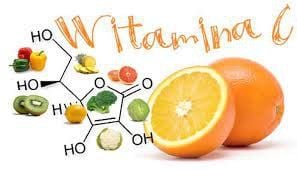
Vitamin C chống viêm là tác dụng được nhiều người biết đến
2.4. Vitamin D reduces inflammation Scientists have long identified a link between vitamin D deficiency and inflammatory diseases. When the body is provided with enough vitamin D, it will contribute a large part to the process of preventing the body's inflammatory response.
In addition to the natural source of vitamin D available in the sun, you can supplement from food sources around us such as fish, egg yolks, milk... When you suspect vitamin D deficiency, you should Go to a medical facility to perform a quantitative test and consult a doctor before using multivitamin tablets.
2.5. Antioxidant Vitamin E This is a very good anti-inflammatory vitamin. Results from a 2015 meta-analysis in the European Journal of Clinical Nutrition confirmed that vitamin E has anti-inflammatory properties and that patients with inflammatory diseases should be supplemented with this vitamin.
In nature, this micronutrient-rich food can be found in nuts such as sunflower seeds and almonds. Certain fruits and vegetables like avocados and spinach are also rich in vitamin E.
2.6. Vitamin K Reduces Inflammation A report in the Journal of Metabolism found that vitamin K may reduce inflammatory symptoms, help blood clotting and protect bone health. Although vitamin K is essential for bone health, most people don't get enough from their diets.
The recommended amount of vitamin K for adult men is about 120 micrograms (mcg) and women should get 90mcg.
Vitamin K is divided into two types, vitamin K1 and K2. Vitamin K1 is found in vegetables such as kale, broccoli, cabbage, and spinach, and vitamin K2 is found in eggs and poultry.
2.7. Bromelain supports the immune system This is the main ingredient contained in pineapple juice with anti-inflammatory properties and supports your immune system. In some mild cases like tendinitis and minor muscle injuries like sprains, pineapple juice is also a helpful option. Several studies have shown that bromelain can reduce the risk of inflammation after dental, nose, and foot procedures. However, additional support from anti-inflammatory drugs prescribed by a doctor is still needed because fruit juice will never be enough.
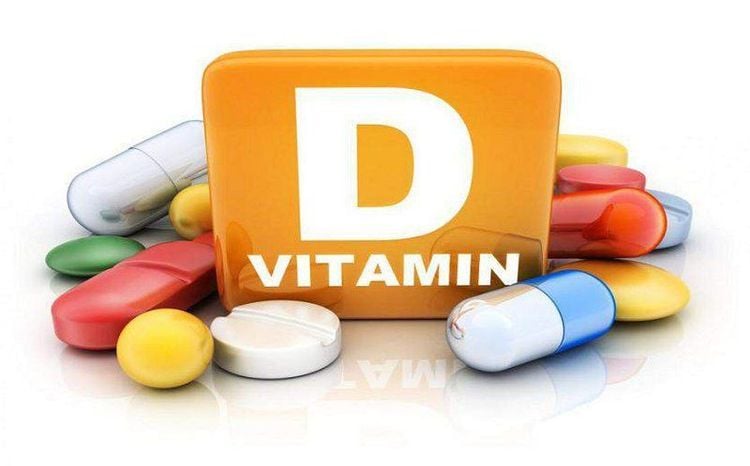
Vitamin D là 1 trong những vitamin kháng viêm hiệu quả
2.8. Capsaicin Controls Inflammatory Response This is the ingredient that gives chili peppers their hot taste and works by blocking a group of proteins that control the body's response to inflammation. Topical products also contain this ingredient with the main use of immediate pain relief and anti-inflammatory.
2.9. Curcumin Reduces Inflammation Curcumin is found in turmeric and this is the component that gives it its characteristic yellow color. Several studies have shown that this traditional Indian medicinal herb can help with certain ailments, including arthritis, inflammatory bowel disease, and fatty liver disease. You can easily find it in spices, creams, drinks and sprays.
2.10. Garlic reduces swelling Garlic works to slow down inflammatory enzymes and increase blood supply to the body's organs. You can add 2-4 fresh garlic cloves to your daily meals to limit swelling and enhance the taste of food. In addition, using garlic oil directly on swollen joints and muscles is also an effective method used by many people.
2.11. Anti-inflammatory Ginger Scientists have studied that ginger has anti-inflammatory effects similar to ibuprofen to help reduce swelling in rheumatoid arthritis as well as taking steroids. In addition, it also helps reduce muscle pain after exercise.
2.12. Omega-3 fatty acids The body cannot produce this fatty acid on its own, but must be supplemented through fish oils or some foods. Fatty fish such as salmon and tuna, kale, vegetable oils and flaxseeds, nuts and eggs from flaxseed-fed chicken.
2.13. Resveratrol Helps Arthritis This natural compound found in some berries and nuts can help with arthritis. Fruits rich in resveratrol compounds include grapes, mulberries, peanuts, blueberries, pistachios, and cranberries.
2.14. Zinc prevents inflammation This micronutrient not only works to prevent inflammation but is also essential for many other functions of the body. Zinc is found in cereals, chicken, and red meats. You need to consult with your doctor before taking zinc supplements in pill form.
Above is a list of anti-inflammatory vitamins obtained from a variety of food sources, including vegetables, fruits, meat, fish, as well as vitamin-fortified foods. Even in supplement form, these vitamins can reduce inflammation without serious side effects. However, consult your doctor before taking any vitamin supplements.
Please dial HOTLINE for more information or register for an appointment HERE. Download MyVinmec app to make appointments faster and to manage your bookings easily.
Reference source: webmd.com



